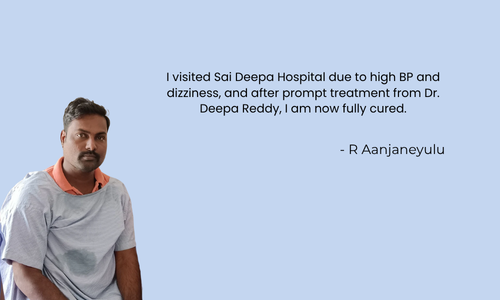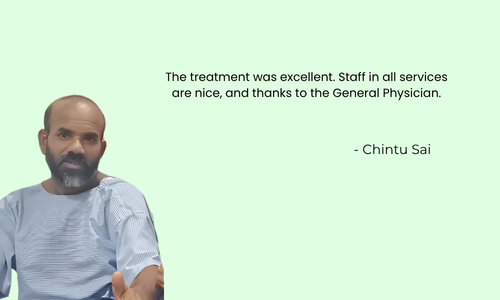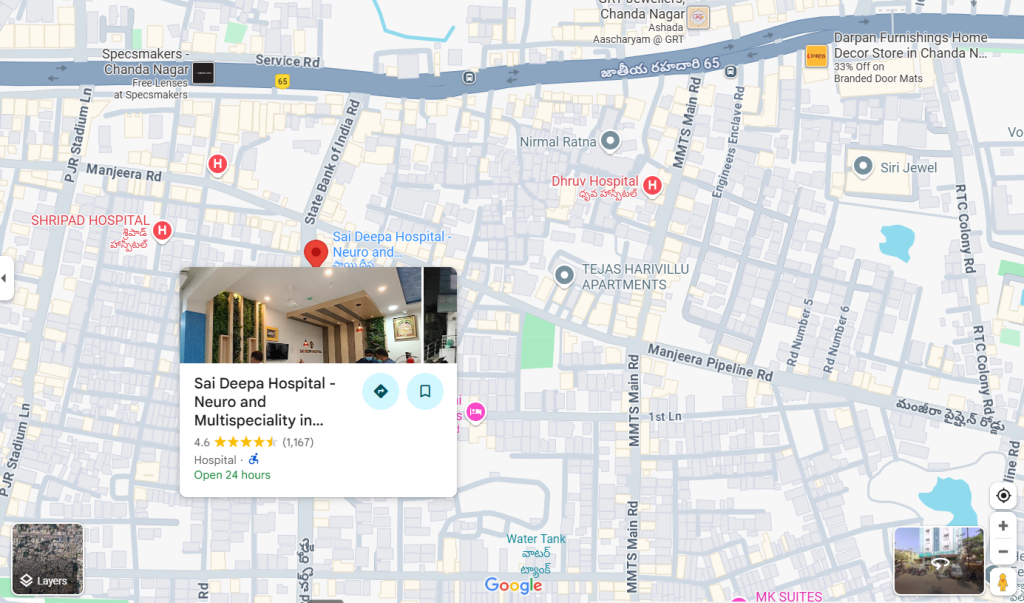Best Intestinal Obstruction Treatment in Hyderabad
- Home
- Best Intestinal Obstruction Treatment in Hyderabad
Best Intestinal Obstruction Treatment in Hyderabad
Intestinal Obstruction is a serious medical condition that requires timely diagnosis and treatment. It occurs when the normal movement of food, fluids, and gas through the intestines is blocked either partially or completely. This blockage can happen in the small intestine or the large intestine, leading to abdominal pain, vomiting, bloating, and constipation. If left untreated, intestinal obstruction can cause severe complications such as infection, tissue death, and even life-threatening sepsis.
Book Free Appointment
1L+
Happy Customers
25+
Qualified Doctors
50
Rooms
5000+
Successful Surgeries
Free
Consultation
24/7 Ambulance
Facility
Insurance
Claim Support
What is Intestinal Obstruction?
Intestinal Obstruction is a condition where the contents of the intestines are unable to pass through due to a physical or functional blockage. The obstruction can be partial, where some fluids or gas still pass, or complete, where nothing moves forward. Both situations are dangerous and require urgent medical attention.
The blockage can occur in the small intestine (which is more common) or the large intestine (colon). While some obstructions resolve with medical treatment, many cases require surgical intervention.

Dr. Sasidhara Roa A
MBBS, MS
5000+ Successful Surgeries
11+ Years of experience
Dr. Sasidhara Rao A. is an experienced General and Laparoscopic Surgeon at Sree Sai Deepa Hospitals, Chandanagar, with over 11 years of expertise and 5000+ successful surgeries. He specializes in laparoscopic, laser, and microscopic surgeries, treating conditions like piles, fissures, varicose veins, and gallbladder issues.
Doctor’s Fellowships:
Fellowship - International Society of Coloproctology
Fellowship in Intimate Health
Fellowship in Diagnostic Endoscopy
What are the Causes of Intestinal Obstruction?
Several conditions can lead to intestinal obstruction. The causes vary depending on whether the obstruction occurs in the small intestine or large intestine.
Common Causes in the Small Intestine
Adhesions (scar tissue): Most common cause, usually after abdominal or pelvic surgery.
Hernias: Intestine gets trapped in a weak spot of the abdominal wall.
Tumors: Abnormal growths can block intestinal passage.
Crohn’s Disease: Inflammation can narrow the intestine.
Volvulus: Twisting of the intestine.
Intussusception: A condition where one part of the intestine slides into another.
Common Causes in the Large Intestine
Colon cancer: Tumors can obstruct passage.
Diverticulitis: Inflamed pouches in the colon may cause narrowing.
Severe constipation or fecal impaction: Stool blocks movement.
Volvulus of the sigmoid colon: Twisting leads to blockage.
What are the Risk Factors of Intestinal Obstruction?
Some individuals are more prone to developing this condition. Risk factors include:
Previous abdominal or pelvic surgery leading to scar tissue formation.
Hernias or abdominal wall weakness.
Chronic inflammatory bowel diseases like Crohn’s disease.
Age above 60 years.
Cancer of the colon or abdomen.
Chronic constipation or motility disorders.
What are the Symptoms of Intestinal Obstruction?
The symptoms depend on the site and severity of the blockage, but common signs include:
Severe abdominal pain and cramping that comes and goes.
Abdominal distension (bloating) due to trapped gas and fluids.
Nausea and vomiting, sometimes with bile or fecal matter.
Constipation and inability to pass gas.
Diarrhea in partial obstructions.
Loss of appetite and fatigue.
In advanced stages, symptoms like fever, rapid heart rate, and severe dehydration may indicate complications like infection or intestinal perforation.
Get your surgery cost
What are the Complications of Intestinal Obstruction?
Delaying treatment can result in life-threatening complications:
Dehydration and electrolyte imbalance from vomiting.
Infection (peritonitis): Leakage of intestinal contents into the abdominal cavity.
Bowel ischemia (reduced blood flow): Tissues of the intestine begin to die.
Sepsis: A life-threatening infection spreading throughout the body.
Permanent damage to the intestines requiring removal.
Early diagnosis and timely medical care are essential to prevent these complications.
Accreditations

Saideepaneurocare Hospitals is NABH certified, a mark of excellence in patient safety and care. We follow stringent healthcare protocols and maintain world-class hygiene standards.

We are ISO 9001 certified, ensuring the highest standards in quality management and patient care. This certification reflects our commitment to efficient processes and continuous improvement in healthcare services.
How to Diagnose Intestinal Obstruction?
Doctors use a combination of physical examination, imaging, and lab tests to confirm the condition.
Medical history and physical exam: Checking symptoms, listening to bowel sounds, and feeling for swelling.
X-rays of the abdomen: Reveal dilated loops of intestine.
CT scan: Provides detailed imaging to identify the cause and location of obstruction.
Ultrasound: Useful in children (especially for intussusception).
Blood tests: Detect infection, dehydration, or electrolyte imbalance.
What are the Treatment options for Intestinal Obstruction
The treatment depends on the type, location, and severity of the obstruction.
Non-Surgical Management
Some partial obstructions can resolve without surgery. Doctors may recommend:
Hospital admission for monitoring.
IV fluids to correct dehydration.
Nasogastric tube insertion to relieve pressure by removing gas and fluids.
Medications for pain relief, nausea, or to stimulate bowel movement (if functional obstruction).
Surgical Management
Surgery is necessary if the obstruction is complete, persistent, or caused by tumors, hernias, or scar tissue. Surgical options include:
Removing the obstruction (e.g., tumor, scar tissue).
Resection of damaged intestine if blood supply is lost.
Repair of hernia or volvulus.
Colostomy or ileostomy in severe cases where part of the intestine is removed.
Sai Deepa Hospital - Neuro and Multispeciality
Plot no 387, Church road, Huda colony, Chanda Nagar, Hyderabad – 500050
Recovery and Lifestyle After Treatment
Patients recovering from intestinal obstruction need to follow medical advice carefully:
Gradually return to normal diet with doctor’s guidance.
Stay hydrated and eat fiber-rich foods to prevent constipation.
Avoid heavy lifting if a hernia repair was performed.
Regular follow-up to monitor recovery and prevent recurrence.
Prevention of Intestinal Obstruction
Although not all cases can be prevented, certain steps can reduce the risk:
Treat and manage hernias early before they lead to complications.
Maintain a healthy, balanced diet with sufficient fiber.
Stay hydrated to promote smooth bowel movement.
Avoid self-medicating for constipation; seek medical advice.
Get regular cancer screenings, especially after age 50.
Follow post-surgery instructions carefully to reduce adhesion formation.
Which is the Best Hospital for Intestinal Obstruction Treatment in Hyderabad
At our hospital, we provide comprehensive care for intestinal obstruction with advanced diagnostic tools, state-of-the-art surgical facilities, and highly experienced specialists. Our multidisciplinary team of surgeons, gastroenterologists, and critical care experts ensures that every patient receives personalized treatment.
We focus on minimally invasive surgical techniques whenever possible, ensuring faster recovery, less pain, and reduced hospital stays. With 24/7 emergency services, we are equipped to handle even the most complex cases of intestinal obstruction.
Your health and safety are our top priority, and we strive to provide compassionate, patient-centered care from diagnosis to recovery.
Where to get the best Intestinal Obstruction Treatment in Chandanagar, Hyderabad?
📍 Sai Deepa Hospitals, Chanda Nagar, Hyderabad
📞 Call or WhatsApp: +91-7093762716
🌐 www.saideepaneurocare.com
Best Intestinal Obstruction Treatment Doctor in Chandanagar | Best Intestinal Obstruction Treatment Doctor in Miyapur | Best Intestinal Obstruction Treatment Doctor in Kukatpally | Best Intestinal Obstruction Treatment Doctor in Hyderabad
Patient Reviews



FAQ's on Intestinal Obstruction
1. What is the most common cause of intestinal obstruction?
Adhesions or scar tissue from previous surgeries are the most common cause, especially in the small intestine.
2. Can intestinal obstruction resolve on its own?
Some partial obstructions may resolve with medical treatment, but complete obstructions require surgery.
3. Can diet prevent intestinal obstruction?
While diet cannot prevent all cases, eating fiber-rich foods, staying hydrated, and avoiding severe constipation can reduce risk.
4. What is the recovery time after surgery for intestinal obstruction?
Recovery depends on the severity and type of surgery but usually takes several weeks. Patients must follow medical advice for diet and activity restrictions.
5. When should I seek emergency care?
Seek urgent help if you have severe abdominal pain, bloating, persistent vomiting, inability to pass stool, or fever.


